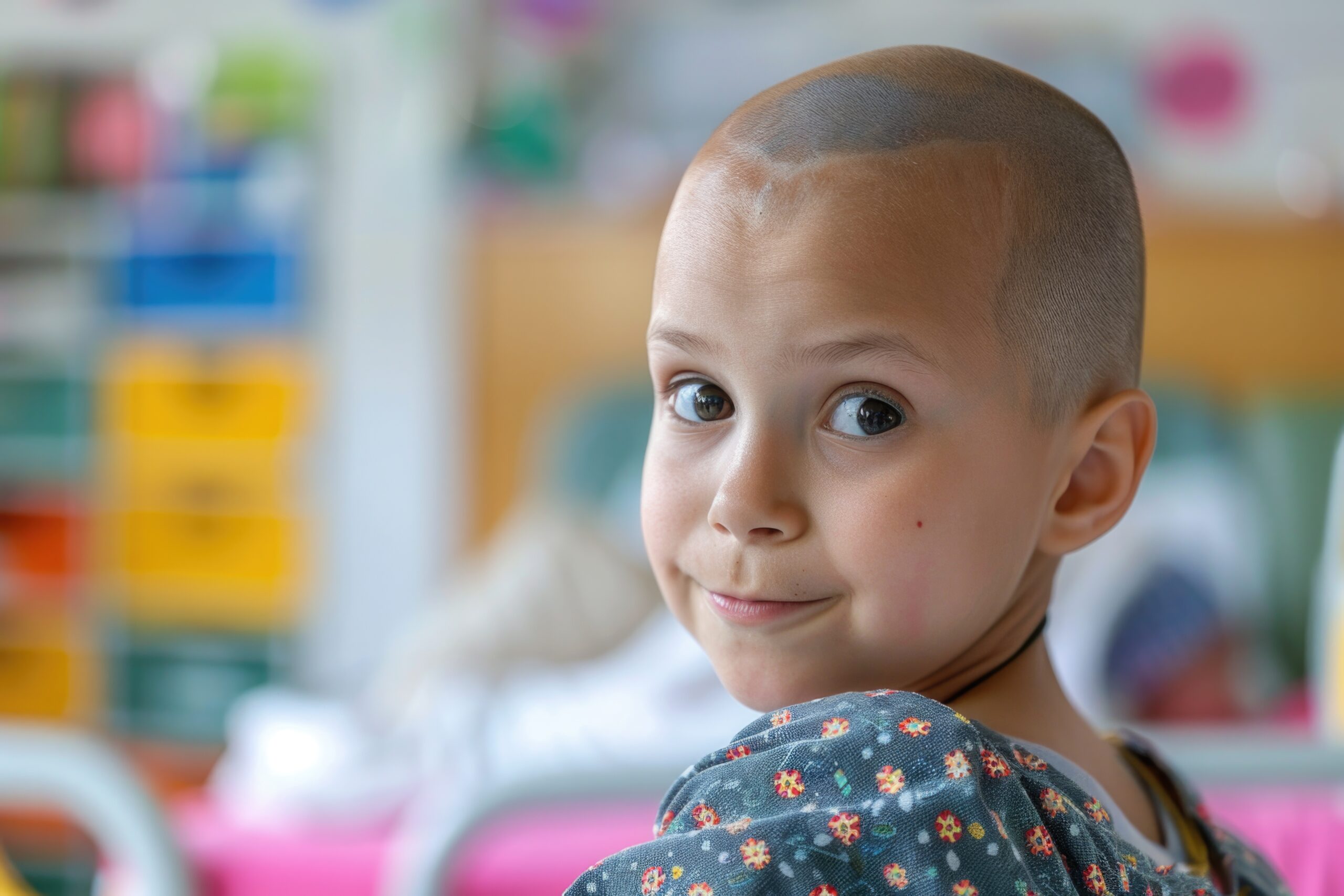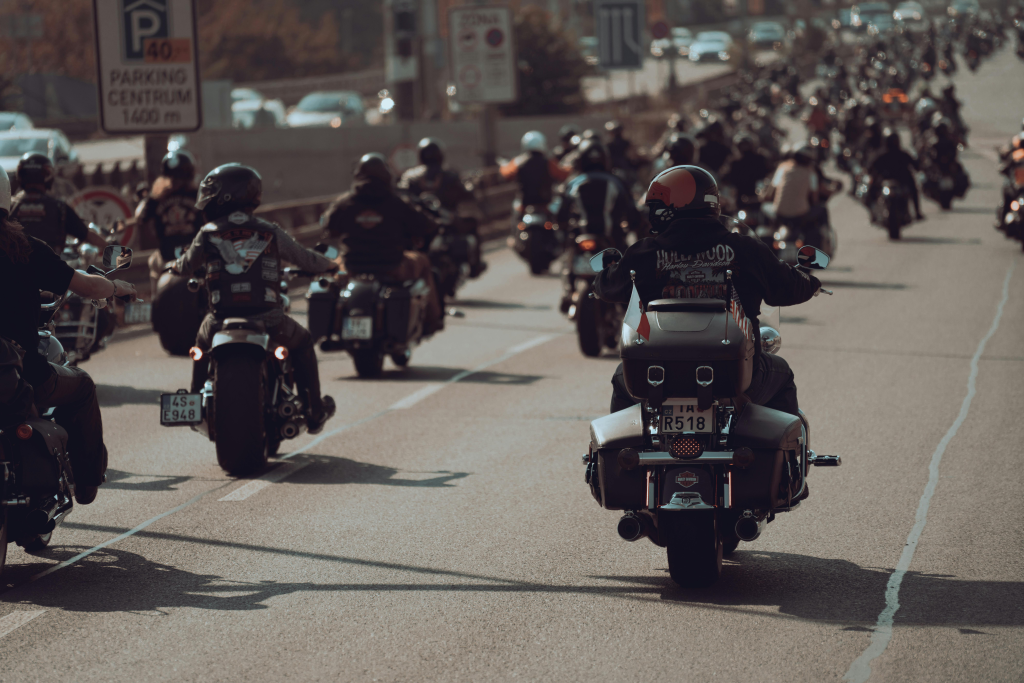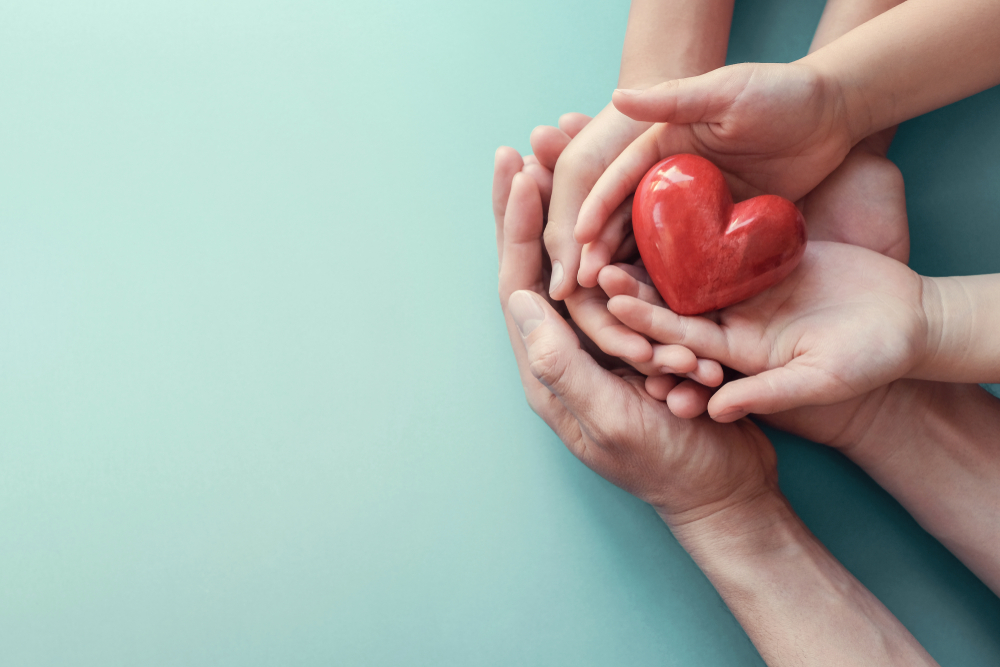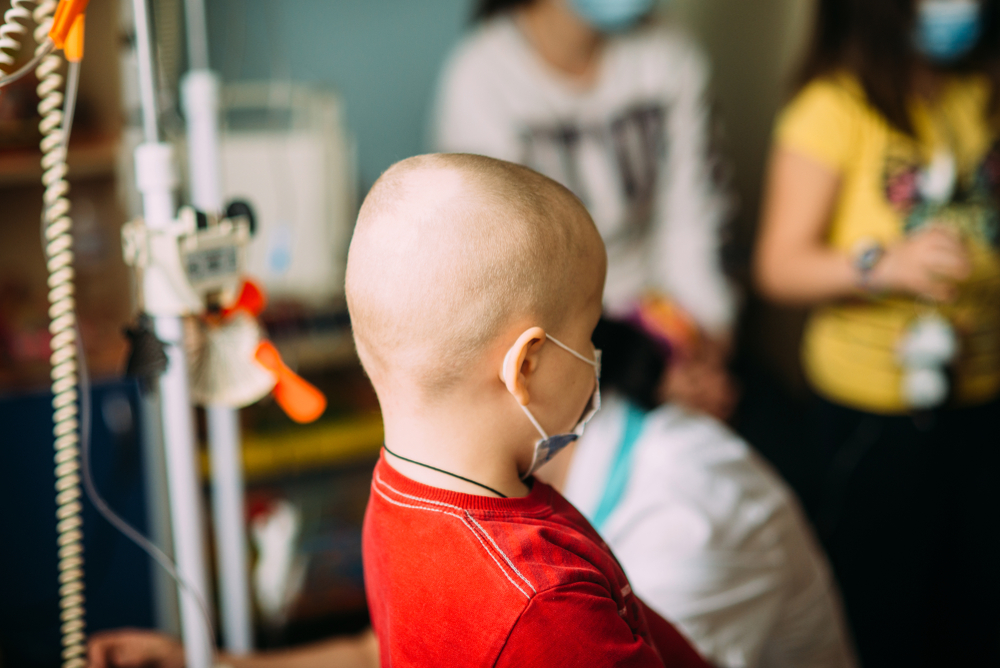Story of a Six-Year-Old Boy Who Loved Motorcycles, Got Cancer, and Whose Parents Asked Online if Anyone Could Ride by Their House and Cheer Him Up. Nearly 20,000 Bikers Showed Up
Last updated on
The sound of a motorcycle engine can be many things: a roar of power, a symbol of freedom, or a simple thunderclap of noise. For most of us, it’s a sound that signals distance, a passing moment on a busy street.
But on one extraordinary summer day in a small German village, those thousands of individual rumbles converged into something else entirely. It became a single, resonating sound—the sound of love, of solidarity, and of a community coming together for one little boy’s final wish.
This is the story of Kilian Sass, a six-year-old with a love for motocross whose quiet wish ignited a roar of compassion heard around the world.
A Boy’s Simple, Sacred Wish
In the quiet town of Rhauderfehn lived a boy whose world was built on the deep, guttural growl of engines. Kilian was a miniature enthusiast, a child whose joy could be measured in revs. He wasn’t just a fan; he was a rider, a tiny figure on a bike whose excitement was as limitless as an open dirt track. But his vibrant life took a devastating turn when he was diagnosed with lymphoma, an aggressive form of cancer that targets the body’s immune system.
Despite every effort from doctors and the unwavering hope of his family, his condition worsened. His parents were eventually given the most devastating news a family can hear: the disease was terminal. Time, which once felt endless, was now measured in fleeting days.
Faced with this heartbreak, they chose to focus not on what was being lost, but on what they could still give him. They sat by his side and asked him a simple, profound question: what would make you happy, right now?
His answer was just as simple and pure: he wanted to hear motorcycles rumble past his home one last time. He wanted to feel the vibration, hear the sound, and see the bikes he loved so much.
With a humble hope, his father reached out to his small local motorcycle club, a tight-knit group of just two dozen riders. He thought maybe a handful of them would be able to oblige, giving Kilian one final moment of pure joy. What began as a quiet, personal wish would soon become a deafening roar of collective empathy that would leave no heart untouched.
How One Act Echoed a Movement
Every movement starts somewhere. For Kilian’s wish, that spark was a fellow rider named Ralf Pietsch.
When Kilian’s father shared his son’s request, Ralf felt the weight of it in his own heart. This wasn’t just a request for noise; it was a plea for a final, powerful moment of joy, a chance to remind a family that they were not alone.
Ralf took to social media. With a powerful simplicity, he posted a heartfelt message titled “Krach für Kilian,” or “Noise for Kilian,” and included a raw voice recording from the boy himself. The simple, honest plea for “the last smile of a little fighter” was all the world needed to hear. The post was a cry from the heart, unpolished and real, and that authenticity was its greatest strength.
The message went viral at astonishing speed. It wasn’t a spectacle or a scandal. It was a sincere cry for help that resonated deeply because it was so profoundly human.
This spontaneous, compassionate reaction is what psychologists call “emergent altruism,” a phenomenon where kindness spreads without a central plan or the promise of personal gain. As Dr. Jamil Zaki, a Stanford psychologist, explains, “Kindness is contagious. When we see others care, we’re more likely to care, too.” The viral moment was not about the bikers’ egos, but about a shared sense of humanity that cut through the noise of the internet.
In just four days, a whisper had become an unstoppable roar. Biker forums across Germany lit up with responses. Riders tagged their friends and clubs began coordinating. Thousands of strangers felt compelled to act, unified by a simple call to be kind.
The Day the Streets Roared
In Germany, a 6-year old boy who loved motorcycles was diagnosed with cancer.
His family posted online asking if anyone could ride their motorbike past their home, to cheer him up. They thought 20 or 30 people would come.
Nearly 15,000 bikers showed up.
♥️ 🇩🇪 pic.twitter.com/pmfztKf094
— Goodable (@Goodable) July 25, 2021
On July 24, 2021, the quiet morning air of Rhauderfehn was broken by the sound of a single motorcycle engine. Then another, and another. Within minutes, the street outside Kilian’s home became a river of chrome and thunder.
By midday, the small town had been transformed. Over 15,000 bikers had converged, some having traveled more than 300 miles. They were strangers to each other and to Kilian, yet they were united by a singular purpose: to deliver joy. The quiet streets, which typically saw only local traffic, were transformed into an awe-inspiring, seven-hour parade. The sound was a low, powerful hum that vibrated through the air and the very ground beneath their feet.
The spectacle was deeply emotional. The bikers wore leather jackets and club patches, but many carried handmade signs with messages of hope. Some brought toys and flowers. It was a deeply felt act of solidarity that brought bystanders to tears as they watched the endless stream of compassion.
Inside the house, a bundled-up Kilian was propped by the window. His illness had weakened his body, but it could not touch his joy. As each new wave of bikers passed, his eyes lit up. He clapped, he smiled, and he let out triumphant screams of happiness. For those precious hours, he wasn’t a boy defined by cancer. He was the heart of something monumental, a child at the center of a story written in chrome and kindness.
“We never expected so many people to come,” recalled event organizer Markus Kruse. “I have goosebumps all over my body.” The event was captured in countless photos and videos, showing a river of bikes stretching to the horizon, a visual testament to the power of compassion.
An Invitation to Empathy
For a long time, popular culture has painted a one-dimensional picture of bikers as intimidating rebels in leather jackets, a stereotype focused more on menace than mercy. But on that day in Rhauderfehn, 15,000 bikers redefined what it means to be a community.
They showed that compassion doesn’t require an introduction; it just needs an invitation.
This was a profound lesson in empathy from a group often overlooked for their emotional depth. The sheer scale of the turnout showed that underneath the tough exteriors were ordinary people with immense capacity for kindness. As one rider, Kim Hansen, shared after traveling over 370 miles, “I’ve lost a six-year-old son myself. I know how it must feel for the parents.” Her words resonated with a shared grief that pulsed beneath the surface of the roar, demonstrating a powerful form of vulnerability.
In a world that often prizes individualism, these bikers did the opposite, proving that empathy is a universal language. They showed up for a child they had never met and, in doing so, created a moment of shared human connection that transcended roles and hierarchies. That day, there were no outsiders. There were just thousands of people moving together, unified not by identity, but by intention.
The Sound of Kindness
Just one month after the streets filled with thunder for him, Kilian Sass passed away. His small body, worn down by cancer, couldn’t fight any longer. But he didn’t leave this world quietly. Instead, he left wrapped in love, his final days lit by a joy most people never get to experience. As thousands of engines roared past his window, he smiled, laughed, and cheered. That day wasn’t about facing the end; it was about living fully in a moment of pure, unexpected happiness.
His story is a living echo. It’s a powerful reminder that simple acts of kindness can become something monumental. The bikers didn’t have a cure for Kilian’s cancer, but they gave him something just as precious: the feeling of being truly seen, heard, and celebrated. They reminded him—and all of us—that joy matters, even when time is running short.
You may never be part of a motorcycle parade that’s 15,000 strong. But the truth is, every day, people all around you are quietly hoping for someone to notice them. Their needs might not go viral, but they are there, waiting for an answer. Be the one who shows up. Be the roar in someone’s silence.
Some of the links I post on this site are affiliate links. If you go through them to make a purchase, I will earn a small commission (at no additional cost to you). However, note that I’m recommending these products because of their quality and that I have good experience using them, not because of the commission to be made.
































 JOIN OVER
JOIN OVER
Comments